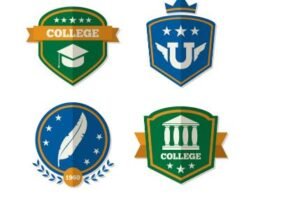The Ivy League vs. Public Universities: Which Is Right for You?

Choosing the right university is a pivotal decision in one’s academic journey. Two distinct paths often stand before students: the prestigious Ivy League and the accessible public university. Each option has its own merits, and the choice depends on individual aspirations and circumstances.
Ivy League: The Epitome of Prestige
The Ivy League represents the pinnacle of academic excellence and prestige. Comprising eight elite institutions, including Harvard, Yale, and Princeton, these schools boast renowned faculty, world-class resources, and a global alumni network. Graduating from an Ivy League institution opens doors to exclusive career opportunities and is a symbol of accomplishment.
However, the Ivy League comes with a hefty price tag. Tuition and fees are among the highest in the nation, and admission is fiercely competitive, with acceptance rates often below 10%. Students who thrive in a highly competitive environment and value the cachet of an Ivy League diploma may find this path appealing.
Public Universities: Accessible and Diverse
Public universities, on the other hand, offer affordability and accessibility. These institutions, funded by state governments, provide quality education at a fraction of the cost of private schools. Public universities often have larger class sizes but provide a diverse student body, robust extracurricular activities, and strong academic programs.
Choosing a public university can be a practical decision for those concerned about student loan debt and seeking a more affordable education. Public institutions also offer the chance to explore various fields of study before committing to a major.
The Right Choice for You :
Ultimately, the choice between the Ivy League and public universities depends on individual goals, financial considerations, and personal preferences. It’s crucial to consider factors such as academic interests, career aspirations, and financial constraints when making this decision. Both paths can lead to successful careers and fulfilling lives; what matters most is finding the university that aligns with your unique journey and ambitions.
| Aspect | Ivy League Universities | Public Universities |
|---|---|---|
| Tuition and Fees | High, often with substantial financial aid available | More affordable, especially for in-state residents |
| Admissions Selectivity | Extremely competitive, low acceptance rates | Varied acceptance rates, less competitive |
| Academic Reputation | Renowned for academic excellence | Varies by university, some have strong academic programs |
| Class Sizes | Smaller classes, more personalized attention | Larger class sizes, potentially less personalized |
| Financial Aid | Generous need-based aid, limited or no loans | Need-based and merit-based aid, loans may be required |
| Alumni Network | Extensive, influential global network | Diverse alumni network, varies by institution |
| Campus Resources | State-of-the-art facilities and research opportunities | Quality resources, but may not be as extensive |
| Diversity of Student Body | Diverse, international student body | Diverse, often representing the state’s demographics |
| Extracurricular Activities | Robust extracurricular offerings | Varied extracurricular opportunities |
| Career Opportunities | Access to exclusive career opportunities | Access to regional job markets, career services available |
More on:
Financial Aid at Ivy League Schools: Myths and Realities 2023

